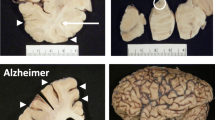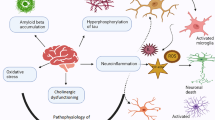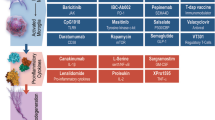Abstract
It has been well established that adult neurogenesis occurs throughout life in the subventricular (SVZ) and subgranular (SGZ) zones. However, the exact role of this type of brain plasticity is not yet clear. Many studies have shown that neurogenesis is involved in learning and memory. This has led to a hypothesis which suggests that impairment in memory during aging and neurodegenerative diseases such as Alzheimer’s disease (AD) may involve abnormal neurogenesis. Indeed, during aging, there is an age-related decline in adult neurogenesis. This decline is mostly related to decreased proliferation, associated to decreased stimulation to proliferate in an aging brain. In AD, there is also evidence for decreased neurogenesis, that accompanies the neuronal loss characteristic of the disease. Interestingly in AD, there is increased proliferation, that may be caused by increasing amounts of soluble amyloid ß42-protein (Aβ42). However, most of these new neurons die, and fibrillar Aβ42 seems to be involved in generating an inappropriate environment for these neurons to mature. These findings open prospects for new strategies that can increase neurogenesis in normal or pathological processes in the aging brain, and by that decrease memory deficits.

Similar content being viewed by others
References
Zhao C, Deng W, Gage F (2008) Mechanisms and functional implications of adult neurogenesis. Cell 132:645–660
Emsley J, Mitchell B, Kempermann G, Macklis J (2005) Adult neurogenesis and repair of the adult CNS with neural progenitors, precursors, and stem cells. Prog Neurobiol 75:321–341
Martin S, Grimwood P, Morris R (2000) Synaptic plasticity and memory: an evaluation of the hypothesis. Annu Rev Neurosci 23:649–711
Luine V, Villegas M, Martinez C, McEwen B (1994) Repeated stress causes reversible impairments of spatial memory performance. Brain Res 639:167–170
Diamond D, Park C, Heman K, Rose G (1999) Exposing rats to a predator impairs spatial working memory in the radial arm water maze. Hippocampus 9:542–552
Tanapat P, Hastings N, Reeves A, Gould E (1999) Estrogen stimulates a transient increase in the number of new neurons in the dentate gyrus of the adult female rat. J Neurosci 19:5792–5801
Tanapat P, Hastings N, Rydel T, Galea L, Gould E (2001) Exposure to fox odor inhibits cell proliferation in the hippocampus of adult rats via an adrenal hormone-dependent mechanism. J Comp Neurol 437:496–504
Mirescu C, Peters J, Gould E (2004) Early life experience alters response of adult neurogenesis to stress. Nat Neurosci 7:841–846
Kempermann G, Kuhn H, Gage F (1998) Experience-induced neurogenesis in the senescent dentate gyrus. J Neurosci 18:3206–3212
van Praag H, Christie B, Sejnowski T, Gage F (1999) Running enhances neurogenesis, learning, and long-term potentiation in mice. Proc Natl Acad Sci USA 96:13427–13431
Lemaire V, Koehl M, Le Moal M, Abrous D (2000) Prenatal stress produces learning deficits associated with an inhibition of neurogenesis in the hippocampus. Proc Natl Acad Sci USA 97:11032–11037
Wood G, Beylin A, Shors T (2001) The contribution of adrenal and reproductive hormones to the opposing effects of stress on trace conditioning in males versus females. Behav Neurosci 115:175–187
Holmes M, Wide J, Galea L (2002) Low levels of estradiol facilitate, whereas high levels of estradiol impair, working memory performance on the radial arm maze. Behav Neurosci 116:928–934
Bartolomucci A, de Biurrun G, Czéh B, van Kampen M, Fuchs E (2002) Selective enhancement of spatial learning under chronic psychosocial stress. Eur J Neurosci 15:1863–1866
Leuner B, Mendolia-Loffredo S, Kozorovitskiy Y, Samburg D, Gould E, Shors T (2004) Learning enhances the survival of new neurons beyond the time when the hippocampus is required for memory. J Neurosci 24:7477–7481
Döbrössy M, Drapeau E, Aurousseau C, Le Moal M, Piazza P, Abrous D (2003) Differential effects of learning on neurogenesis: learning increases or decreases the number of newly born cells depending on their birth date. Mol Psychiatry 8:974–982
Hairston I, Little M, Scanlon M et al (2005) Sleep restriction suppresses neurogenesis induced by hippocampus-dependent learning. J Neurophysiol 94:4224–4233
Ambrogini P, Orsini L, Mancini C, Ferri P, Ciaroni S, Cuppini R (2004) Learning may reduce neurogenesis in adult rat dentate gyrus. Neurosci Lett 359:13–16
Snyder J, Hong N, McDonald R, Wojtowicz J (2005) A role for adult neurogenesis in spatial long-term memory. Neuroscience 130:843–852
Gould E, Beylin A, Tanapat P, Reeves A, Shors T (1999) Learning enhances adult neurogenesis in the hippocampal formation. Nat Neurosci 2:260–265
Olariu A, Cleaver K, Shore L, Brewer M, Cameron H (2005) A natural form of learning can increase and decrease the survival of new neurons in the dentate gyrus. Hippocampus 15:750–762
Van der Borght K, Wallinga A, Luiten P, Eggen B, Van der Zee E (2005) Morris water maze learning in two rat strains increases the expression of the polysialylated form of the neural cell adhesion molecule in the dentate gyrus but has no effect on hippocampal neurogenesis. Behav Neurosci 119:926–932
Pham K, McEwen B, Ledoux J, Nader K (2005) Fear learning transiently impairs hippocampal cell proliferation. Neuroscience 130:17–24
Shors T, Miesegaes G, Beylin A, Zhao M, Rydel T, Gould E (2001) Neurogenesis in the adult is involved in the formation of trace memories. Nature 410:372–376
Shors T, Townsend D, Zhao M, Kozorovitskiy Y, Gould E (2002) Neurogenesis may relate to some but not all types of hippocampal-dependent learning. Hippocampus 12:578–584
Hattiangady B, Shetty A (2008) Aging does not alter the number or phenotype of putative stem/progenitor cells in the neurogenic region of the hippocampus. Neurobiol Aging 29:129–147
Aizawa K, Ageyama N, Terao K, Hisatsune T (2009) Primate-specific alterations in neural stem/progenitor cells in the aged hippocampus. Neurobiol Aging (in press)
Rao M, Hattiangady B, Abdel-Rahman A, Stanley D, Shetty A (2005) Newly born cells in the ageing dentate gyrus display normal migration, survival and neuronal fate choice but endure retarded early maturation. Eur J Neurosci 21:464–476
Bondolfi L, Ermini F, Long J, Ingram D, Jucker M (2004) Impact of age and caloric restriction on neurogenesis in the dentate gyrus of C57BL/6 mice. Neurobiol Aging 25:333–340
Enwere E, Shingo T, Gregg C, Fujikawa H, Ohta S, Weiss S (2004) Aging results in reduced epidermal growth factor receptor signaling, diminished olfactory neurogenesis, and deficits in fine olfactory discrimination. J Neurosci 24:8354–8365
Cuppini R, Bucherelli C, Ambrogini P et al (2006) Age-related naturally occurring depression of hippocampal neurogenesis does not affect trace fear conditioning. Hippocampus 16:141–148
Molofsky A, Slutsky S, Joseph N et al (2006) Increasing p16INK4a expression decreases forebrain progenitors and neurogenesis during ageing. Nature 443:448–452
Kuhn H, Dickinson-Anson H, Gage F (1996) Neurogenesis in the dentate gyrus of the adult rat: age-related decrease of neuronal progenitor proliferation. J Neurosci 16:2027–2033
Lichtenwalner R, Forbes M, Bennett S, Lynch C, Sonntag W, Riddle D (2001) Intracerebroventricular infusion of insulin-like growth factor-I ameliorates the age-related decline in hippocampal neurogenesis. Neuroscience 107:603–613
McDonald H, Wojtowicz J (2005) Dynamics of neurogenesis in the dentate gyrus of adult rats. Neurosci Lett 385:70–75
van Praag H, Shubert T, Zhao C, Gage F (2005) Exercise enhances learning and hippocampal neurogenesis in aged mice. J Neurosci 25:8680–8685
Heine V, Maslam S, Joëls M, Lucassen P (2004) Prominent decline of newborn cell proliferation, differentiation, and apoptosis in the aging dentate gyrus, in absence of an age-related hypothalamus-pituitary-adrenal axis activation. Neurobiol Aging 25:361–375
Driscoll I, Howard S, Stone J et al (2006) The aging hippocampus: a multi-level analysis in the rat. Neuroscience 139:1173–1185
Kempermann G, Brandon E, Gage F (1998) Environmental stimulation of 129/SvJ mice causes increased cell proliferation and neurogenesis in the adult dentate gyrus. Curr Biol 8:939–942
Jin K, Sun Y, Xie L et al (2003) Neurogenesis and aging: FGF-2 and HB-EGF restore neurogenesis in hippocampus and subventricular zone of aged mice. Aging Cell 2:175–183
Heine V, Maslam S, Zareno J, Joëls M, Lucassen P (2004) Suppressed proliferation and apoptotic changes in the rat dentate gyrus after acute and chronic stress are reversible. Eur J Neurosci 19:131–144
Sapolsky R (1992) Do glucocorticoid concentrations rise with age in the rat? Neurobiol Aging 13:171–174
Cameron H, McKay R (1999) Restoring production of hippocampal neurons in old age. Nat Neurosci 2:894–897
Mohs R, Schmeidler J, Aryan M (2000) Longitudinal studies of cognitive, functional and behavioural change in patients with Alzheimer’s disease. Stat Med 19:1401–1409
Haass C, Selkoe D (2007) Soluble protein oligomers in neurodegeneration: lessons from the Alzheimer’s amyloid beta-peptide. Nat Rev Mol Cell Biol 8:101–112
Ziabreva I, Perry E, Perry R et al (2006) Altered neurogenesis in Alzheimer’s disease. J Psychosom Res 61:311–316
Lovell M, Geiger H, Van Zant G, Lynn B, Markesbery W (2006) Isolation of neural precursor cells from Alzheimer’s disease and aged control postmortem brain. Neurobiol Aging 27:909–917
Nagy Z, Esiri M, Smith A (1997) Expression of cell division markers in the hippocampus in Alzheimer’s disease and other neurodegenerative conditions. Acta Neuropathol 93:294–300
Boekhoorn K, Joels M, Lucassen P (2006) Increased proliferation reflects glial and vascular-associated changes, but not neurogenesis in the presenile Alzheimer hippocampus. Neurobiol Dis 24:1–14
Jin K, Peel A, Mao X et al (2004) Increased hippocampal neurogenesis in Alzheimer’s disease. Proc Natl Acad Sci USA 101:343–347
Li B, Yamamori H, Tatebayashi Y et al (2008) Failure of neuronal maturation in Alzheimer disease dentate gyrus. J Neuropathol Exp Neurol 67:78–84
Jin K, Galvan V, Xie L et al (2004) Enhanced neurogenesis in Alzheimer’s disease transgenic (PDGF-APPSw, Ind) mice. Proc Natl Acad Sci USA 101:13363–13367
López-Toledano M, Shelanski M (2007) Increased neurogenesis in young transgenic mice overexpressing human APP (Sw, Ind). J Alzheimers Dis 12:229–240
Donovan M, Yazdani U, Norris R, Games D, German D, Eisch A (2006) Decreased adult hippocampal neurogenesis in the PDAPP mouse model of Alzheimer’s disease. J Comp Neurol 495:70–83
Haughey N, Nath A, Chan S, Borchard A, Rao M, Mattson M (2002) Disruption of neurogenesis by amyloid beta-peptide, and perturbed neural progenitor cell homeostasis, in models of Alzheimer’s disease. J Neurochem 83:1509–1524
Wen P, Hof P, Chen X et al (2004) The presenilin-1 familial Alzheimer disease mutant P117L impairs neurogenesis in the hippocampus of adult mice. Exp Neurol 188:224–237
Wang R, Dineley K, Sweatt J, Zheng H (2004) Presenilin 1 familial Alzheimer’s disease mutation leads to defective associative learning and impaired adult neurogenesis. Neuroscience 126:305–312
Verret L, Jankowsky J, Xu G, Borchelt D, Rampon C (2007) Alzheimer’s-type amyloidosis in transgenic mice impairs survival of newborn neurons derived from adult hippocampal neurogenesis. J Neurosci 27:6771–6780
Zhang C, McNeil E, Dressler L, Siman R (2007) Long-lasting impairment in hippocampal neurogenesis associated with amyloid deposition in a knock-in mouse model of familial Alzheimer’s disease. Exp Neurol 204:77–87
Yu Y, He J, Zhang Y et al (2009) Increased hippocampal neurogenesis in the progressive stage of Alzheimer’s disease phenotype in an APP/PS1 double transgenic mouse model. Hippocampus 19:1247–1253
Rodríguez J, Jones V, Tabuchi M et al (2008) Impaired adult neurogenesis in the dentate gyrus of a triple transgenic mouse model of Alzheimer’s disease. PLoS One 3:e2935
Chen Q, Nakajima A, Choi S, Xiong X, Sisodia S, Tang Y (2008) Adult neurogenesis is functionally associated with AD-like neurodegeneration. Neurobiol Dis 29:316–326
López-Toledano M, Shelanski M (2004) Neurogenic effect of beta-amyloid peptide in the development of neural stem cells. J Neurosci 24:5439–5444
Heo C, Chang K, Choi H et al (2007) Effects of the monomeric, oligomeric, and fibrillar Abeta42 peptides on the proliferation and differentiation of adult neural stem cells from subventricular zone. J Neurochem 102:493–500
Chen Y, Dong C (2009) Abeta40 promotes neuronal cell fate in neural progenitor cells. Cell Death Differ 16:386–394
Acknowledgments
The work presented in this manuscript was supported, in part, by the Norma and Alan Aufzein Chair for Parkinson’s Disease Research and the Devora Eleonora Kirshman Fund for Research of Parkinson’s Disease, Tel-Aviv University.
Author information
Authors and Affiliations
Corresponding author
Rights and permissions
About this article
Cite this article
Shruster, A., Melamed, E. & Offen, D. Neurogenesis in the aged and neurodegenerative brain. Apoptosis 15, 1415–1421 (2010). https://doi.org/10.1007/s10495-010-0491-y
Published:
Issue Date:
DOI: https://doi.org/10.1007/s10495-010-0491-y




